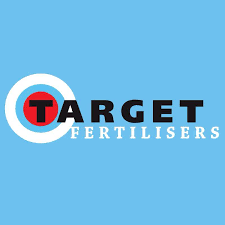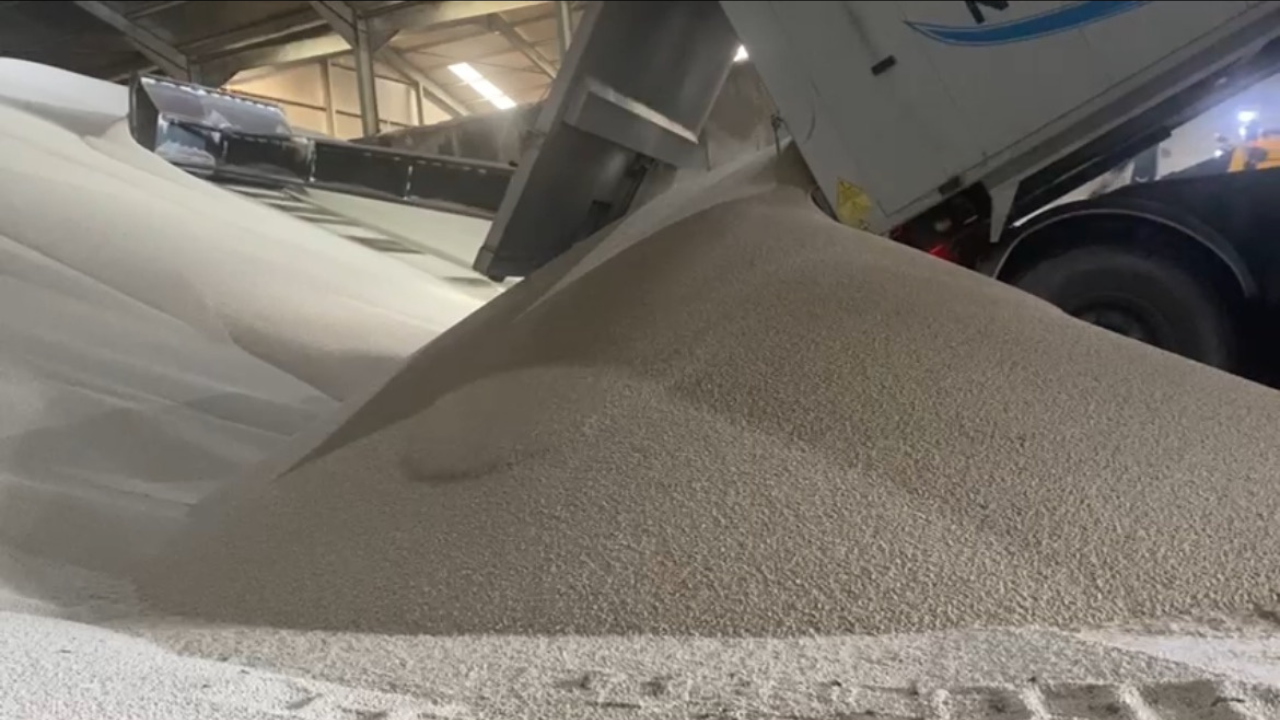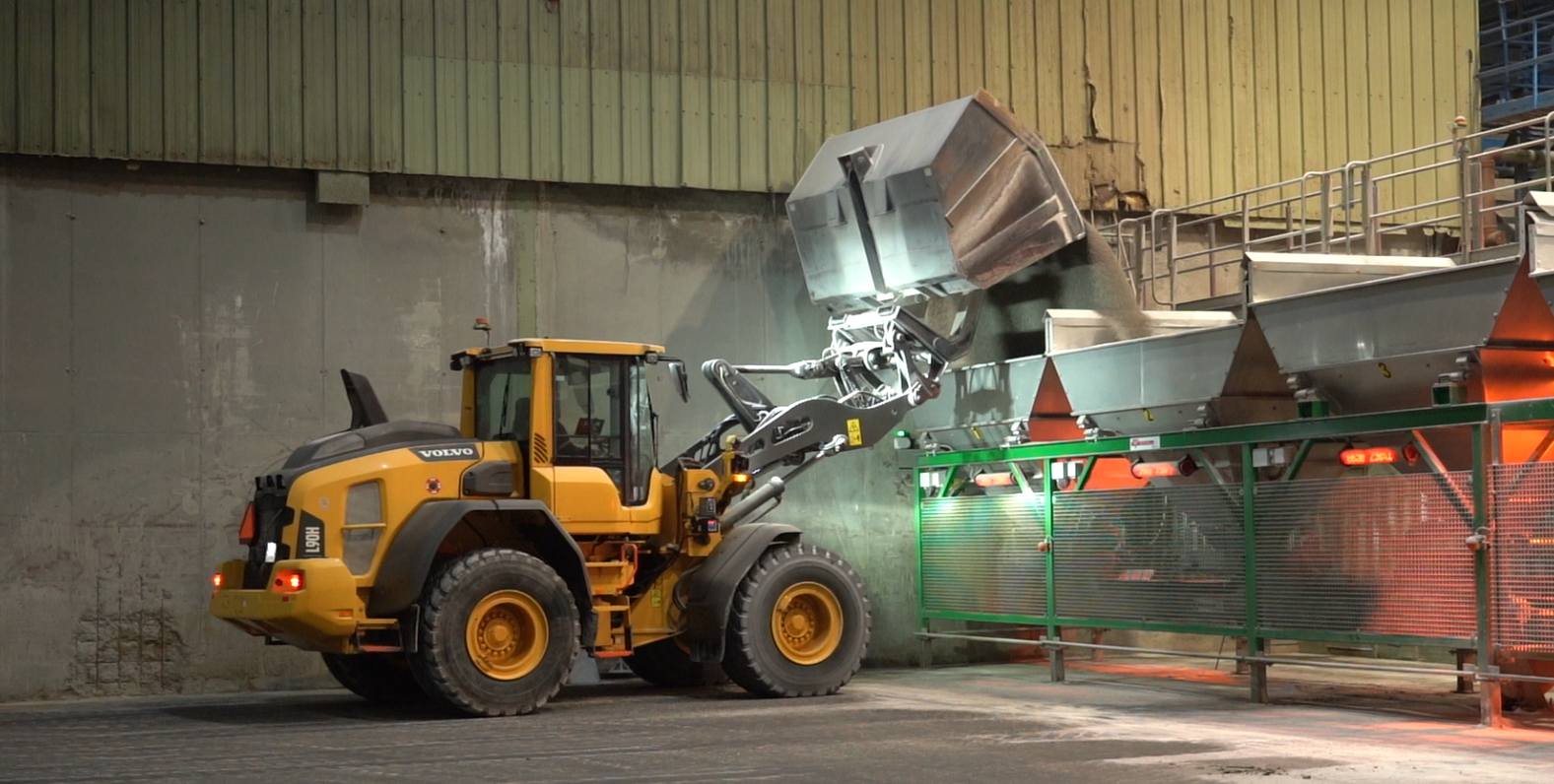Sponsored Article

Sponsored Article
From ship to soil: Delivering consistency, quality and support during reseeding
Sponsored Article

Ordering fertiliser is second nature to most Irish farmers and farm managers. But behind every order lies a highly coordinated operation — one that begins long before the product reaches the yard.
At the heart of this operation is Target Fertilisers, and one of its most crucial hubs, Belview Port in Co. Kilkenny.
From sourcing and blending to testing and delivery, Target Fertilisers’ Belview operations play a vital role in ensuring that farmers receive a high-quality product when and where they need it most - especially during peak periods like reseeding.
Belview is the closest Irish bulk port to mainland Europe, and a cornerstone of Target Fertilisers’ supply chain.
The scale of operations is striking - every ounce of what becomes a Target product arrives into the port by ship.
On average, 4,000t of raw materials are unloaded from each vessel over an 11-hour, two-shift working day.
Target Fertilisers general manager, Walter Furlong Jnr, said: “From January to mid-May, we can have two to three vessels docking each week.
“Sometimes, we handle bulk deliveries of up to 25,000t, particularly when dealing with shared shipments of ammonium sulphate.”
Countries like France, Belgium, Germany, and Spain supply raw materials, with protected urea, for example, arriving from trusted international sources based in north Africa.
Maintaining quality from ship to soil is at the core of Target’s promise.
Every load is rigorously tested for chemical composition - nitrogen (N), phosphorus (P), and potassium (K) - moisture content, granule size, hardness, and density - factors that directly impact spreading accuracy and crop response.
An independent laboratory in Belgium handles additional verification, with samples from every shipment assessed for spreadability and granule consistency.
“Even something like granule density affects how a product spreads,” says Furlong.
“You can’t just mix high and low-density materials like potash and urea without affecting performance in the field.”
At Belview, the raw materials are moved through hoppers, screw augers, aspirator elevators, and mixing belts where oils, talc, and sometimes Limus are added (for protected urea). This process ensures consistency throughout every tonne.
“Our production team uses what’s called the ‘falling stream method’ - where we sample material mid-transfer for on-the-spot testing,” Furlong explains.
“At the end of the process, we coat the fertiliser with oil to reduce dust and improve flowability.”
During busy days, up to 1,400t of fertiliser are produced in Belview.
Once bagged, product is transferred to a secure storage yard just over 1.5km away, where it is covered to prevent moisture absorption - crucial given the hygroscopic nature of fertiliser.
Right now, reseeding is top of mind for many farmers. Grassland renewal is a vital part of farm productivity—and fertiliser plays a central role in setting new swards up for success.
Target Fertilisers offers blends specifically designed for reseeding.
“Our 10-10-20 + 2% S or 12-8-20 + S blends are perfect for reseeding,” Furlong said.
“The added sulphur supports early growth and delivers the key nutrients needed to get reseeded ground off to the best possible start.”
"A low nitrogen approach - around 30 units/ac -is ideal to avoid unnecessary leaching and allow for additional N to be applied later via Target CAN, SuperCAN or protected urea, in line with the farm's nutrient plan.”
With reseeding in full swing, timing and product availability are everything - and Target’s Belview-based logistics network is built to deliver.
With sustainability targets front and centre, protected urea products like Target Max are gaining traction.
Promoted by Teagasc as a “key technology', protected urea supports yield while reducing greenhouse gas emissions.
That said, it is a more labour-intensive product to produce and handle.
“You can’t load or bag as much due to its lower bulk density, It takes about 25% more time per pallet compared to CAN,” Furlong explains.
Yet, the investment in time and effort is well worth it for a product that aligns with both climate targets and farm profitability.
Target Fertilisers offers a wide range of proven, high-quality blends designed to meet the needs of Irish farmers across varying soil and grassland conditions.
Their technical team works closely with merchants, co-ops, and farmers to ensure the right product is delivered to the right place at the right time.
“We offer a range of blends with different types of sulphur to suit farmers’ needs,” Furlong said.
“That’s part of Target Fertilisers’ ongoing commitment to supporting our farmers beyond both delivery and the point of sale and into each growing season.”
Sponsored Article








